Adult
Professional therapy and individual advice
Speech therapy in adulthood
Speech and language disorders can also occur in adults, for example due to aphasia, which is caused by damaged areas in the brain. In a speech therapy practice, exercises are put together individually for the person concerned so that speaking and language skills can be restored.
The linguistic impairments of adults are either congenital (e.g. disabilities or syndromes) or acquired (e.g. tumors, stroke, traumatic brain injury). In adulthood, we treat language disorders, speech disorders, voice disorders and swallowing disorders in all degrees of severity.
These can be caused by very different underlying diseases. The aim of our therapies with adults is to promote the specific deficits through everyday therapy. The focus is on the individual potentials in order to develop skills based on this and to accompany the functions and activities therapeutically towards the best possible physiology, thereby alleviating the restrictions and improving quality of life and participation.
Language problems that have a neurological cause are called aphasia. Aphasia manifests itself in varying degrees of severity in a language production disorder and / or a language comprehension disorder. People who have a speech production disorder find it much more difficult to come up with a certain word, because of it they paraphrase a lot and use a lot of filler words or phrases such as "ehm" or "things, you know ...". This often leads to breaks in a sentence.
A language production disorder can be so pronounced that only a certain word or phrases are uttered that do not fit in terms of content, but the person concerned is aware of this and understands language largely without difficulty. People with a speech understanding disorder no longer understand language or do not understand it completely. This can manifest itself in such a way that prompts are no longer understood in everyday life and affected people lose their orientation in everyday life. Linguistically, people with a speech comprehension disorder often express themselves in extremely long, verbose sentences that are mostly poor in content.
Diagnostics, advice and therapy
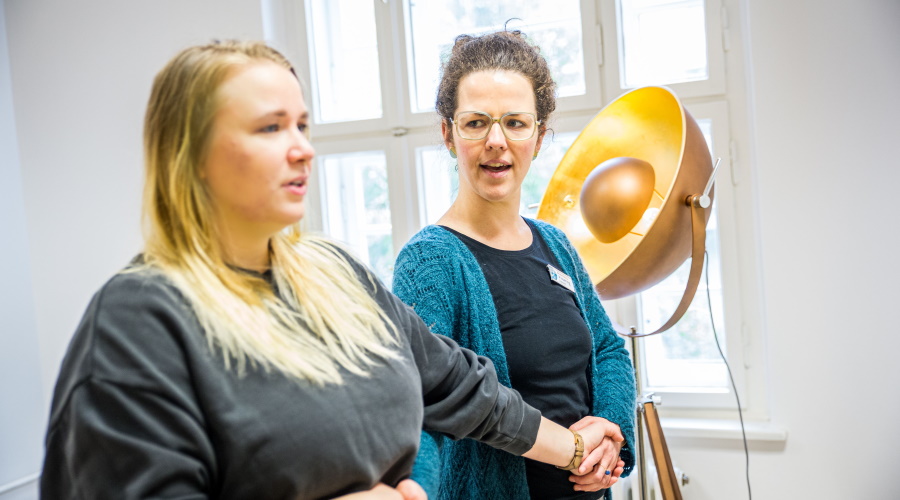
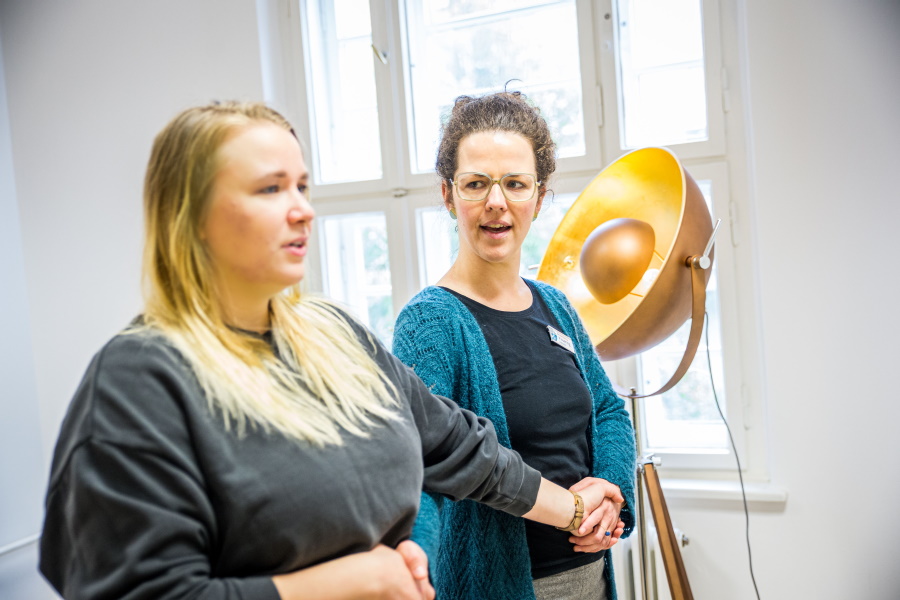
Speech disorders in adults arise from damage to the brain in the area of the language center (usually in the left part). Causes for this can be a stroke, cerebral hemorrhage, brain injuries caused by accidents, brain tumors, inflammatory diseases of the brain and also brain breakdown processes.
- Central language disorders as a result of neurological diseases (aphasia after a stroke) or z. B. Traumatic brain injury
- age-related language disorders
- for people with cochlear implants
- Speech practice (speech disorders)
- Dysarthrophonia (disorder of breathing, vocalization, speaking)
- Dysarthria
- Stuttering, rumbling (disturbances in the flow of speech)
- Assisted communication using electronic intercoms
- Dysphagia (swallowing disorders due to neurological diseases, after surgery or after traumatic events)
- Functional, organic and psychogenic voice disorders (dysphonia)
- Voice work with trans*
- Therapy for vocal cord paralysis (recurrence palsy)
- Therapy after laryngectomy
- Individually tailored therapy
In our speech therapy practice you can get advice and treatment, as patients of all age groups and as relatives. Also for specific questions about multilingualism. Therapies are possible in English if required.
Language and speech problems in adults
The language problems are offset by the speech problems, which can manifest themselves in the form of dysarthria or apraxia. In dysarthria, breathing in connection with the voice and articulation in the form of muscle movements in the mouth area (tongue, lips, cheeks, etc.) no longer works harmoniously with each other, so that the affected people due to a brittle voice, small articulation movements and / or many broken sentences are difficult to understand due to shortness of breath.
In dysarthria, as in the other fields of treatment described, the difficulties can occur in different degrees of severity and weighting. Thus, for example, dysarthria can easily be present and mainly affect the articulation, but it can also be very clear and thus mean that the person concerned can no longer be understood. This is also the case with apraxia. This can also lead to very incomprehensible speech, whereby speech understanding does not have to be impaired.
In contrast to dysarthria, however, breathing, voice and articulation are not impaired in their function, rather the muscle groups are no longer correctly controlled by the brain.
Another neurologically related area of treatment in speech therapy in adults is dysphagia, the swallowing problem. In the case of swallowing disorders, food is swallowed frequently because, for example, the muscle groups involved are too weak, the sensitivity in the mouth area is reduced and the swallowing reflex is not / closed Is triggered slowly or the coordination of chewing, swallowing and breathing is difficult. In affected persons, frequent clearing of the throat and coughing, very long chewing or even difficult swallowing can be observed during or after eating.
It is important to say here that if you suspect a swallowing problem, it is very important to consult a doctor at an early stage, as frequent swallowing can lead to pneumonia and thus become life-threatening.
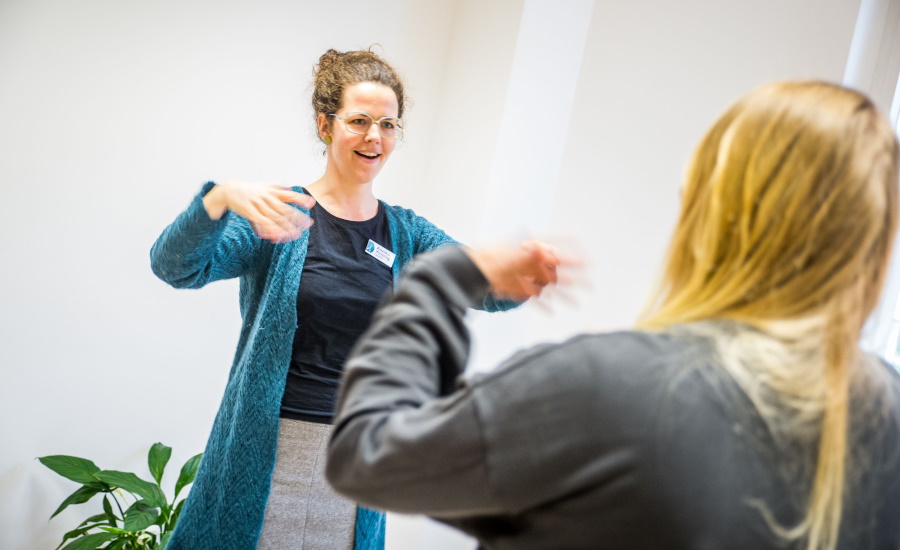
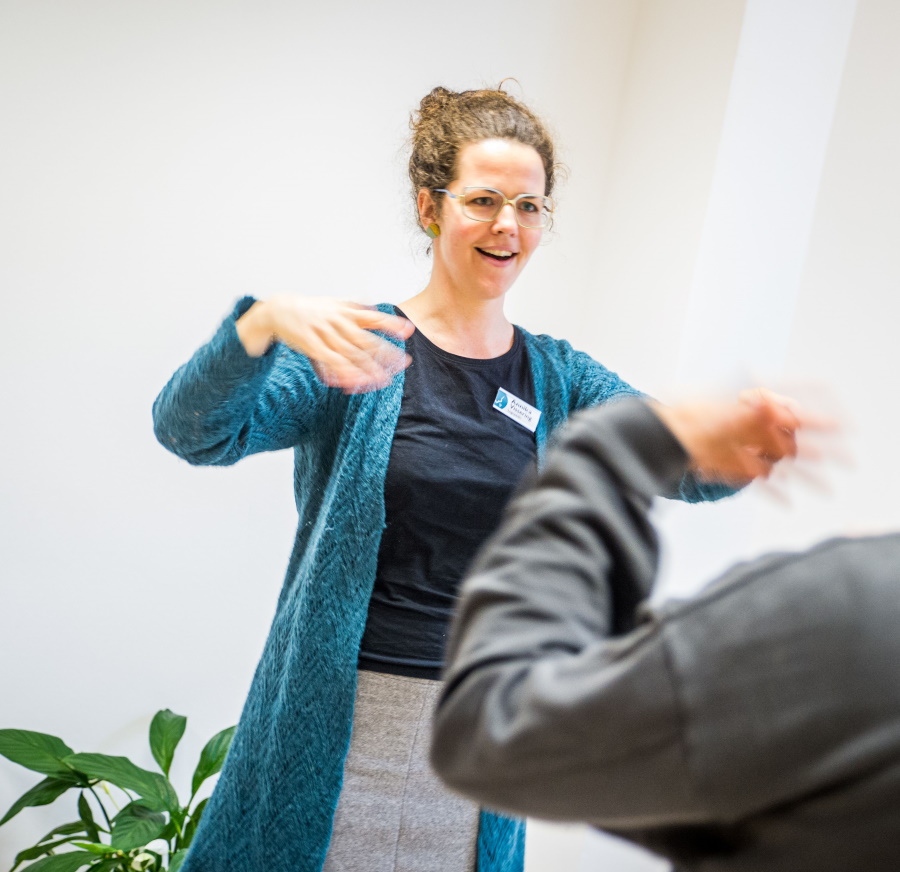
Targeted exercises to strengthen the muscles and increase sensitivity as well as dietary adjustments can help with swallowing disorders. It can manifest itself in a very light form, but it can also happen that affected people can no longer safely take in food and sometimes have to be supplied with a tracheostomy tube. Another field of treatment is the voice problem. Among other things, it manifests itself in a hoarse, fragile, quiet voice that is not optimally resilient. Affected people often feel an effort and tension when speaking, which can also be painful. Voice disorders can have a functional, an organic and / or a psychogenic origin.
Functional means that the voice as our tool is not optimally “used”. For example, it is often the case with affected people that breathing is quite shallow as the basis for a good voice and is not used optimally.
In contrast, it can also be that too much pressure is exerted on the vocal folds and thus a very tense, powerful voice is created. They can also strengthen the vocal folds as muscles and thus become more resilient.
We are happy to help you by phone or email at any time and look forward to a personal registration on site in one of the speech therapy practices in Lichtenberg, Pankow or Bernau near Berlin.
Swallowing disorders in adults
Another neurologically related area of treatment in adults is dysphagia, the swallowing problem. Here food is swallowed frequently, for example because the muscle groups involved are too weak, the sensitivity in the mouth area is reduced and the swallowing reflex is not triggered too slowly or the coordination of chewing, swallowing and breathing is difficult. In affected persons, frequent clearing of the throat and coughing, very long chewing or even difficult swallowing can be observed during or after ingestion of food.
It is important to say here that if you suspect a swallowing problem, it is very important to consult a doctor early on, as frequent swallowing can lead to pneumonia and thus become life-threatening. A swallowing disorder can be helped with specific exercises to strengthen the muscles and increase sensitivity, as well as with dietary adjustments. It can manifest itself in a very light form, but it can also happen that affected persons can no longer safely ingest food and sometimes have to be supplied with a tracheostomy tube.
Voice problems in adults
Another field of treatment is the voice problem. It manifests itself, among other things, in a hoarse, fragile, quiet voice that is not optimally resilient. Affected people often feel an effort and tension when speaking, which can also be painful. Voice disorders can have a functional, an organic and / or a psychogenic origin.
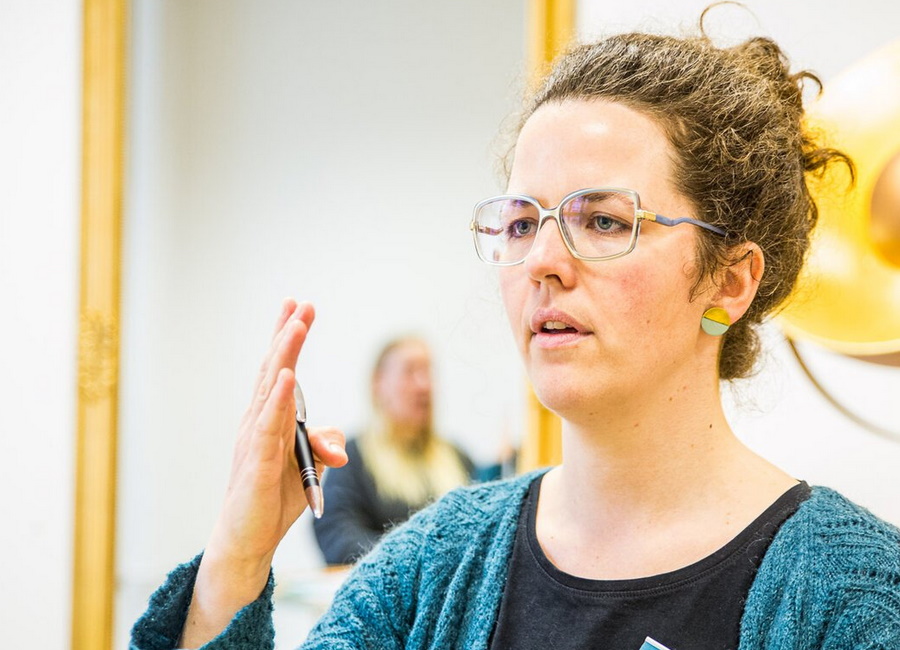
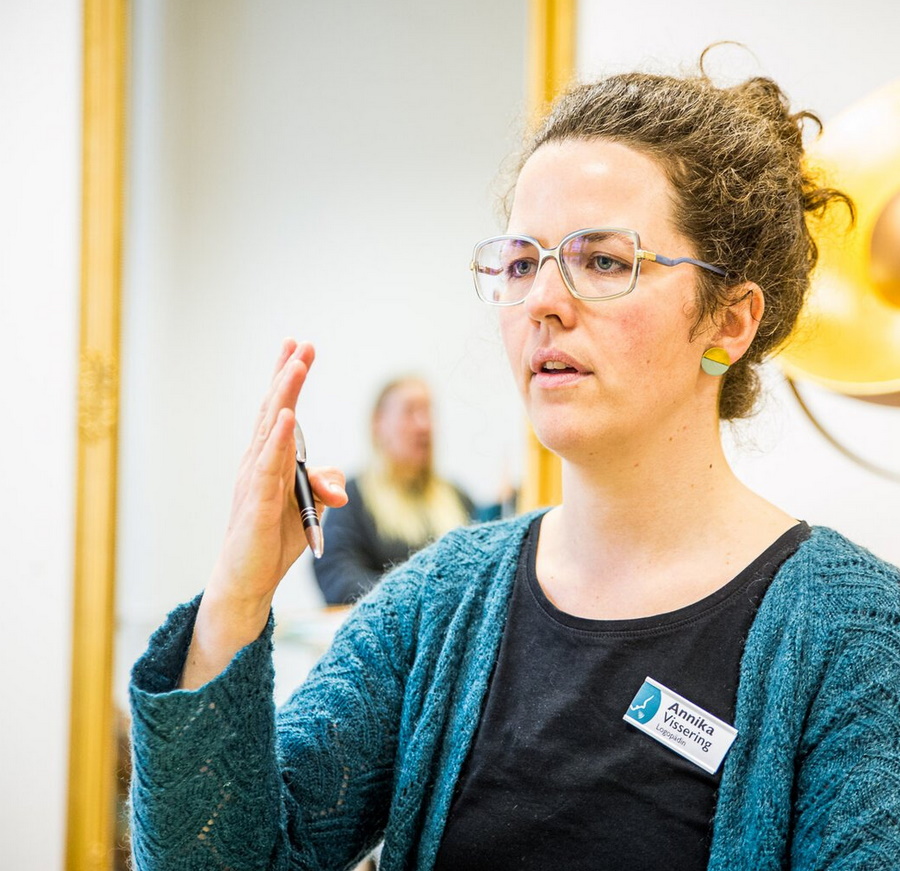
Functional means that the voice as our tool is not optimally “used”. For example, it is often the case with affected people that breathing is quite shallow as the basis for a good voice and is not used optimally. In contrast, it can also be that too much pressure is exerted on the vocal folds and thus a very tense, powerful voice is created. They can also strengthen the vocal folds as muscles and thus become more resilient. A fundamental component of this therapy, however, is also posture and your own perception of your body and voice.
These components are also essential in the therapy of organically caused voice problems. Basic organic diseases can be, for example, an irritated nerve after a thyroid operation or paralysis of a vocal cord and a tumor in the larynx. In addition to posture, breathing, vocalization and voice perception, compensatory measures are a very important component here in order to compensate for the function of a no longer active vocal fold.
Stimulation current therapy is very effective, especially for nerve disorders. Psychogenic voice problems should be combined with professional psychotherapeutic treatment to address not only the effect, the voice problem, but also the source of the voice problem. External and internal side effects, such as high stress and insecurity, but also movements in the face or with the body, are just as individual.
Any questions...
...or would like to contact us?
We are available for you from Monday to Friday.
We look forward to you!
Phone
Online form
Appointment booking
More about Logolo®

In Transition
Voice therapy with transsexuals is one of the exotic disorders not only because of the relative rarity with which transsexual people appear in a speech therapy practice. The insecurity they experience in our society often plays a role.
Read more »

Analysis & consultation
As humans, we have the ability to acquire language and use it to communicate. We talk to each other using our voice. The prerequisite for this is that we are able to hear, the voice is developed normally and we are able to articulate.
Read more »

Children & Teenagers
The children should learn with joy and the aim of our therapies is to strengthen specific skills, reduce deficits and promote performance in the relevant therapeutic field. Parent counseling is also an essential part of the therapy.
Read more »